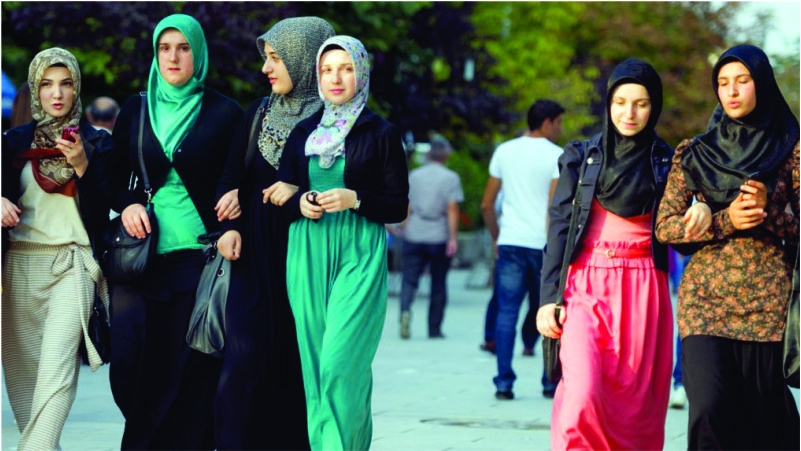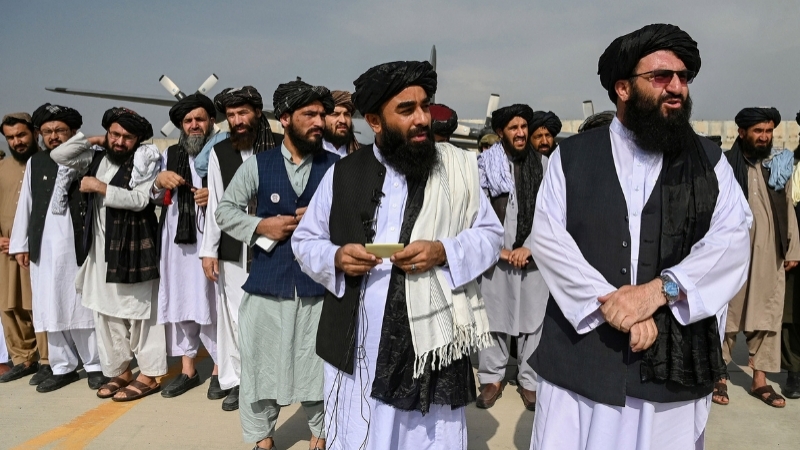Women’s Leadership
Developing Just LeadershipImran Khan
Dhu al-Qa'dah 24, 1445 2024-06-01
Islamic Movement
by Imran Khan (Islamic Movement, Crescent International Vol. 54, No. 4, Dhu al-Qa'dah, 1445)

One of the statements used by some Muslim men, and also some non-Muslims as a battering instrument, is a hadith that is attributed to Allah’s Prophet.
It says a society may not be prosperous or successful as they relegate their affairs to a woman (Sahih Al Bukhari).
Another one says, a society cannot be successful once they rely in their affairs on a woman (Sahih Al Bukhari).
Yet another says, a society cannot be successful when the possession of their affairs is in the hands of a woman (Sahih Al Bukhari).
These translations have been taken to mean that a woman cannot assume responsibilities of the highest offices in an Islamic political order. Before we take a more calculated approach to these ahadith, we remind ourselves that whenever we encounter a hadith, we try to understand it with the Qur’anic momentum.
The ayaat of the Qur’an pertaining to the social, political and other activities of women is beyond question or doubt. They are equivocal and straight-forward in meaning.
“And [as for] the committed muslims, both men and women, they are close to one another…” (The Ascendant Qur’an, Surah Al Tawbah, verse 72)*
What do they do? The ayah says, “they [all] stand for the ma‘ruf and oppose the munkar, and standardize the salah and institutionalize the zakah, and defer to Allah and His Apostle” (Surah Al Tawbah, verse 72).
Establishing the ma‘ruf and disestablishing the munkar applies to all the layers, activities and details of social or political responsibilities. It applies to both the Mu’minin and Mu’minat; men and women. It is their responsibility per this frank ayah in the Book of Allah.
All the details describing men and women who are committed to Allah are on a par. There’s no more responsibility for men than there is for women.
“It is they upon whom Allah will bestow His grace: verily, Allah is prominent, wise!” (The Ascendant Qur’an, Surah Al Tawbah, verse 72)*
Then, we tune in to the Qur’an and listen to Allah when He praises a woman who is the ultimate decision-maker in her own society.
In an Islamic configuration of politics and decision-making, there is the central principle of shura.
“Continued [the Queen], ‘O elite consultants and specialists! Advise me on what to do pertaining to [what has become] my immediate concern; I have never made a final decision unless and until you are privy to it.” (The Ascendant Qur’an, Surah An Naml, verse 32)*
Her response, (in today’s language), to an international correspondence between Heads of State—Bilquis and Sulayman (alaihi as salaam)—is she gets people around her to advise her on what she should do and how she should respond to the letter she had received.
Does Allah bring out this positive character in a woman for us to say that women cannot assume that responsibility!?
If they qualify, just like anyone else, they can assume that responsibility; if they disqualify, then they don’t.
In many ayaat Allah condemns Phiraon, a man, who is making decisions while occupying the highest office in the land.
These are two individuals, (a man and a woman), who are holding the highest office the occupancy of which has become an issue of contention among Muslims, not because of the ayaat of the Qur’an but because of the hadiths that are not understood within the context of the Qur’an.
The ayah about consultation is very clear. If you are in these positions, you seek the input of what other pertinent specialists, experienced people or people “in the know” have to say about issues.
“… and deliberate their [civic] affair through consultation among themselves …” (The Ascendant Qur’an, Surah Ash Shura, verse 38). It’s not absolutism.
Is the word amr talking about societies in which there’s going to be an absolute ruler? Or, is it talking about societies in which rulers diffuse their decision-making by involving others in it?
This ayah dispels the notion that we are going to have a male or a female making absolute decisions on their own!
Now, we come to the hadith. (We are not disputing its authenticity; what we are taking issue with is the understanding of it). How did this hadith come about?
We are told there was a delegation of people who came from Persia to Al Madinah and the Prophet (pbuh) asked them, “who is your ultimate decision-maker? Or who has this wilayah over the affairs of Persia?”
So, one of them said a woman. In reply to that, the Prophet (pbuh) said: “A society or people may not be prosperous or successful as they relegate their affairs to a woman.” (Sahih Al Bukhari)
If we understand the hadith as it pertains to a specific people at a specific time with a woman leading them, then this is not a general statement by which women are disqualified and discredited from that office.
Besides, why is there so much concern with having men occupy that position? Take a look at who are occupying these positions in Muslim lands, with maybe one exception, are they the quality men that we want?
Would you prefer a man making the ultimate decision who is an absolutist and an authoritarian with no shura and you feel “there’s no violation of Islam” but if you have a Muslimah who wants to rule on the basis of shura with the qualifications of any other Muslim then you say “oh no! This is a violation of Islam?!”
Why are Muslims so sensitive to the issue of having an Islamic leader who is a woman who may meet the qualifications of being in that position yet they are very comfortable with kings and presidents who owe their allegiance to Al Shaytaan and who are violating every principle of Islam and to them “aah- there’s a man who is ruling.”
They are more sensitive to the gender issue than the shirk or kufr issue that they should be more sensitive to!



